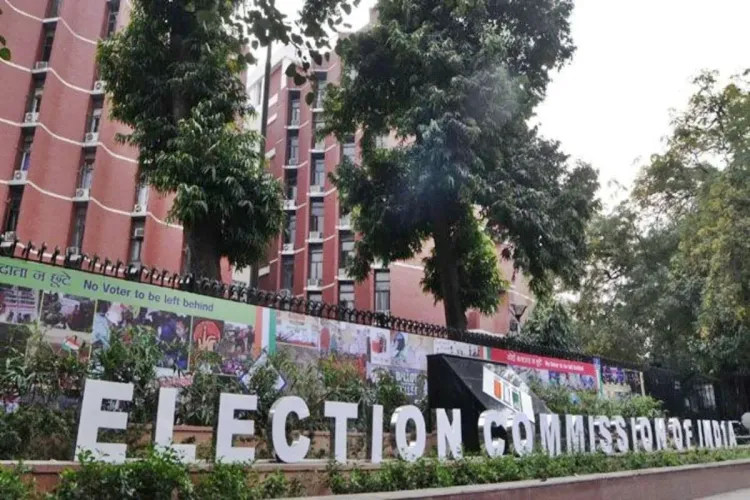How did ECI resolve the issue of similar voter card numbers across states?

Synopsis
Key Takeaways
- The Election Commission of India resolved a 20-year-old issue of duplicate EPIC numbers.
- Over 99 crore electors' data was reviewed to ensure accuracy.
- New EPIC cards were issued to affected voters.
- Field verification confirmed the legitimacy of all voters involved.
- This change aims to enhance electoral integrity.
New Delhi, May 13 (NationPress) In a significant move to enhance the integrity of electoral rolls and ensure their accuracy, the Election Commission of India has addressed a longstanding issue that has persisted for nearly two decades—namely, the presence of identical Electoral Photo Identity Card (EPIC) numbers assigned to legitimate voters across various states, as confirmed by an official source on Tuesday.
The official added that this problem arose due to the overlapping use of similar series by different Electoral Registration Officers (EROs) since 2005.
To resolve this protracted issue, the Chief Electoral Officers (CEOs) of all 36 States/UTs and EROs from 4,123 Assembly constituencies, managing about 10.50 lakh polling stations, conducted a thorough examination of the electoral database, which encompasses over 99 crore electors.
Typically, there are around 1,000 voters per polling station, and the number of discovered similar EPIC numbers was quite small, averaging roughly one in every four polling stations, according to the official.
Field-level verification revealed that those with similar EPIC numbers were legitimate voters residing in different Assembly constituencies and polling stations. Consequently, all affected voters have been issued new EPIC cards bearing distinct numbers.
The root cause of this issue dates back to 2005 when various States/UTs adopted different alphanumeric series for Assembly Constituencies in a decentralized fashion, the source explained.
These series underwent a change again in 2008 following the delimitation of constituencies. During this period, some Assembly Constituencies mistakenly continued to utilize either the outdated series or, due to typographical errors, employed series designated for other constituencies.
Each voter's name appears on the electoral roll of their respective polling station, where they are considered ordinary residents. The presence of an EPIC number that resembles another does not allow any individual to vote at a different polling station, meaning this issue had no bearing on election outcomes, the source clarified.
In February, West Bengal Chief Minister Mamata Banerjee accused the BJP of manipulating electoral rolls with the ECI's complicity, alleging that individuals from Punjab, Haryana, and Gujarat were registered as voters in West Bengal. She also instructed her party members to identify fake voters.









